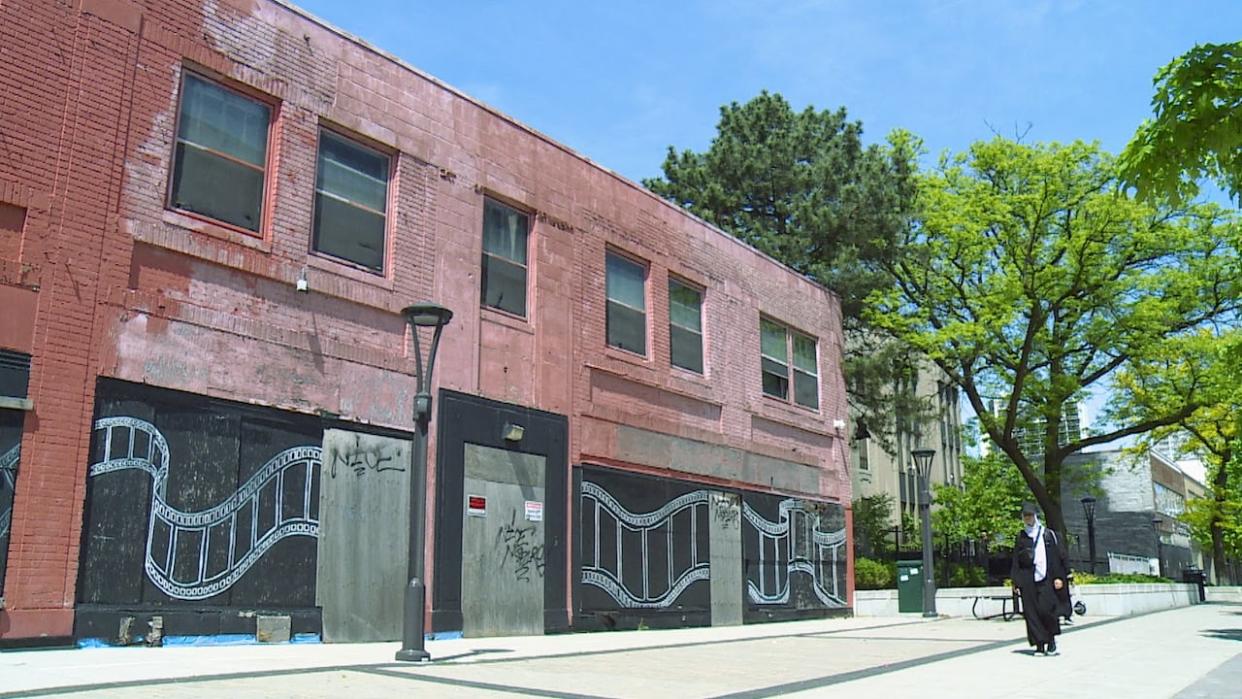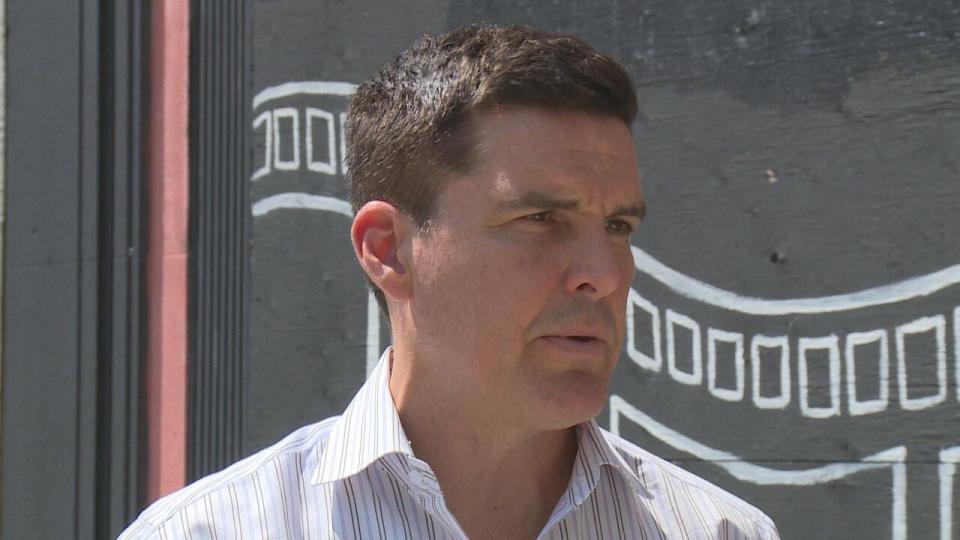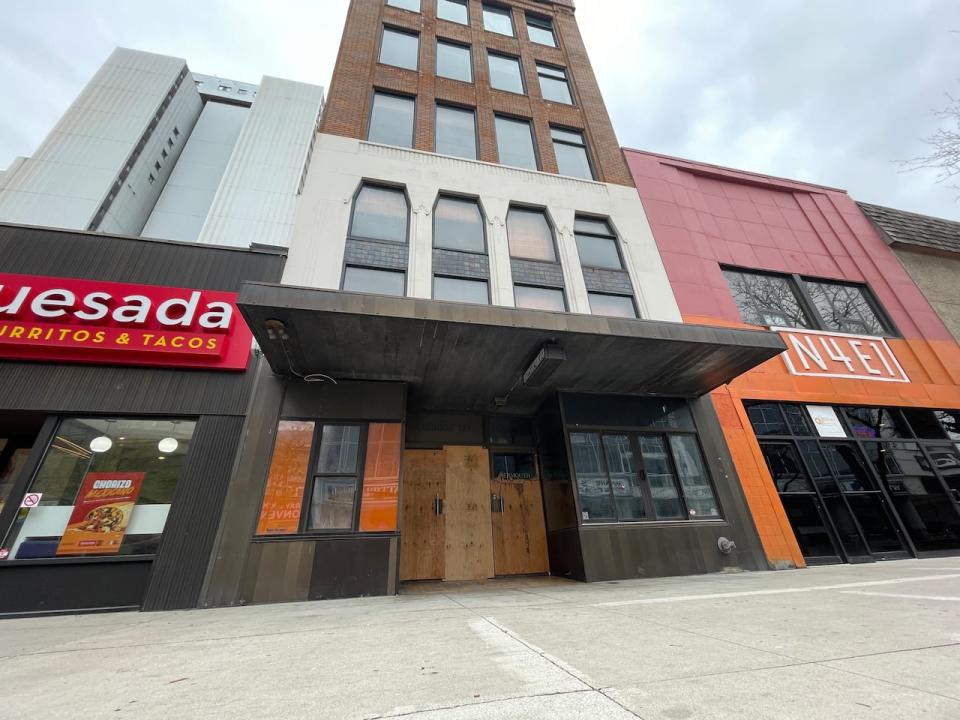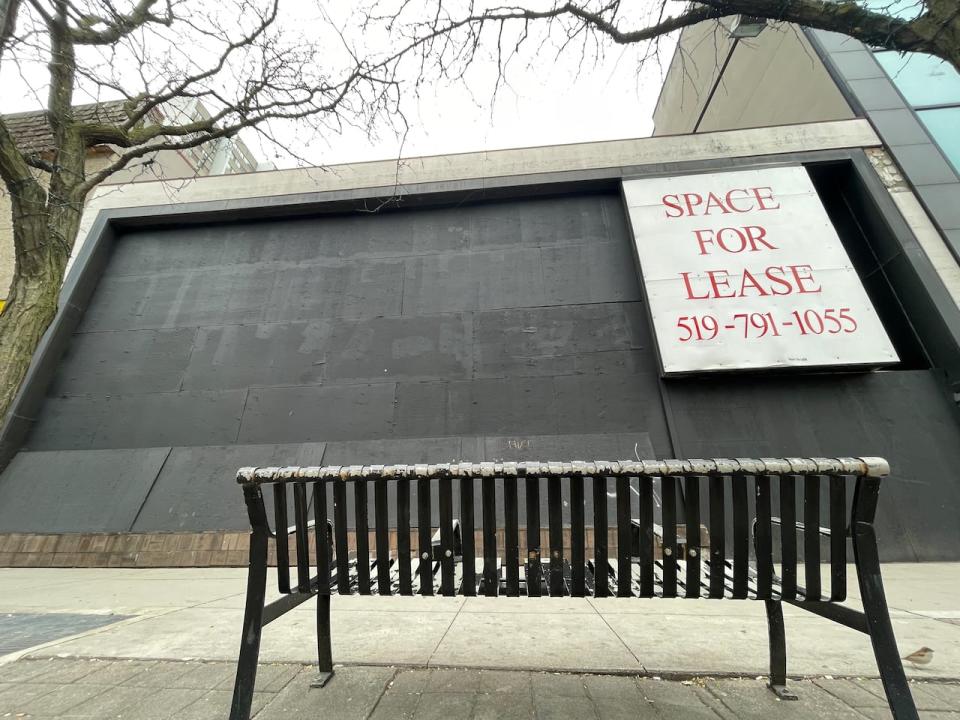Windsor's downtown 'perfect' for commercial-turned-residential units, with highest vacancy rates in Canada

Windsor's downtown commercial vacancy rate is now the highest in Canada.
But even as some are working on converting empty downtown offices to residential and retail space, there are barriers.
The real estate company CBRE tracks commercial real estate across Canada and says Windsor's office vacancy rate has hit a crisis point. The downtown office vacancy rate is 41.6 per cent, the highest for major cities in the country, said a CBRE representative in a written submission to council this week.
That's "well above" the national average of about 18 per cent, and comparable markets: London (28 per cent) and Waterloo (22.5 per cent).
"I think if if you've seen a major market with this type of vacancy rate, it would certainly be considered a crisis," said Brad Collins, vice-president with CBRE Windsor and a longtime Windsor resident.
"Our core is not a major employment centre, so maybe it's not considered as much so, but obviously a cause for concern and you know this sort of plan that's being rolled out I think is very timely in that respect."
The CBRE says it was an issue even in 2019, before the pandemic pushed people out of downtown and into work-from-home arrangements. But since 2019, the office vacancy rate has more than doubled, even as the suburban office vacancy rate has gone up less than a percentage point.
'Incremental' change and attitudes shifting to positivity about downtown
The numbers were noted in a letter to Windsor city council this week, which said that safety and security were the number one reason business leave downtown Windsor.
Developer Rhys Trenhaile is working to convert Windsor's empty commercial spaces into housing.
He says there's no "silver bullet" that will fix the issue.

Rhys Trenhaile is a Windsor developer with two projects in the works to turn vacant commercial space in downtown Windsor into residential and retail space. (Chris Ensing/CBC)
"It's incremental. So when we're adding two more properties to the solution, which is creating more retail vibrancy in the front of both buildings and creating that residential density which supports the commercial downtown," he said.
Trenhaile currently has four projects on the go: One that would convert an old law office on Ouellette Avenue into eight residential units, eventually with a cafe and large patio on the ground floor. A second project, also on Ouellette, will be converted into 42 units and four ground-floor retail spaces.
Trenahile is also transforming the 14-storey Canada Building on Ouellette into dozens of residential units, along with retail, and is continuing work at 493 University Ave. W., which will become a mixed-use building.
Trenhaile says he's seen positive changes over the years he's been working on downtown properties. But the issue is one of speed: He says his projects have taken years to be approved.
On Monday, Windsor city councillors approved an expansive downtown revitalization plan aimed at bringing more people and safety to the downtown core.
Building density from scratch
Trenhaile says he was surprised by the vacancy number in Windsor.
"Any building that is feasible mathematically to convert empty office space into residential is now being done in the downtown core," he said — but said that most spaces can't be easily converted.
"We're exhausting that, right? The next step now is to look to build in, you know, parking lots and that sort of thing and and build additional density from scratch."
It's something on which he says other cities are far ahead of Windsor.
"They're actually being a lot more aggressive in London, Ont., for example, where I believe they signed up for the the federal money that we didn't sign up for," Trenhaile said, referencing the city's failed bid to secure Housing Accelerator Fund (HAF) money.
London is providing funding of $28,000 per two-bedroom unit to convert office space into residential.
Windsor's downtown community improvement plan, by contrast, provides about $2,500 per unit to a maximum of $50,000 per property.
Downtown 'perfect' for high-density housing
Brent Klundert heads the Windsor-Essex Home Builders' Association.
He says there are a lot of factors that go into converting commercial space into residential — notably constraints on infrastructure like sewer capacity that are present elsewhere in Windsor and Essex county.
"The downtown core doesn't have these constraints. It is basically it's open for business, it's open for that density. So as we're looking to infill, it's a perfect spot to to centre that high density housing," he said.

The City of Windsor will work to attract more businesses downtown, and enforce property standards, if a new downtown revitalization plan is approved. The "Strengthen the Core" plan was unveiled by Windsor Mayor Drew Dilkens on Tuesday. (Chris Ensing/CBC)
Both Trenhaile and Klundert says they're happy to see the city's downtown revitalization plan.
You're going to see those cameras and those police officers having a very positive effect," Trenhaile said.
"Couple that with increased foot traffic from increased residential density into the downtown core over the next five to 10 years and you should see a much, much different downtown core."

Creating financial incentives for downtown development and bringing anchor tenants to the neighbourhood are two strategies in a recently unveiled plan to revitalize Windsor's downtown core. (Chris Ensing/CBC)


